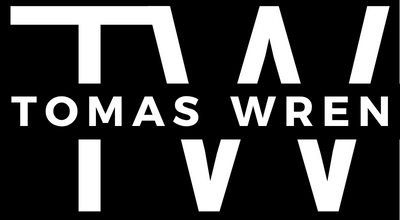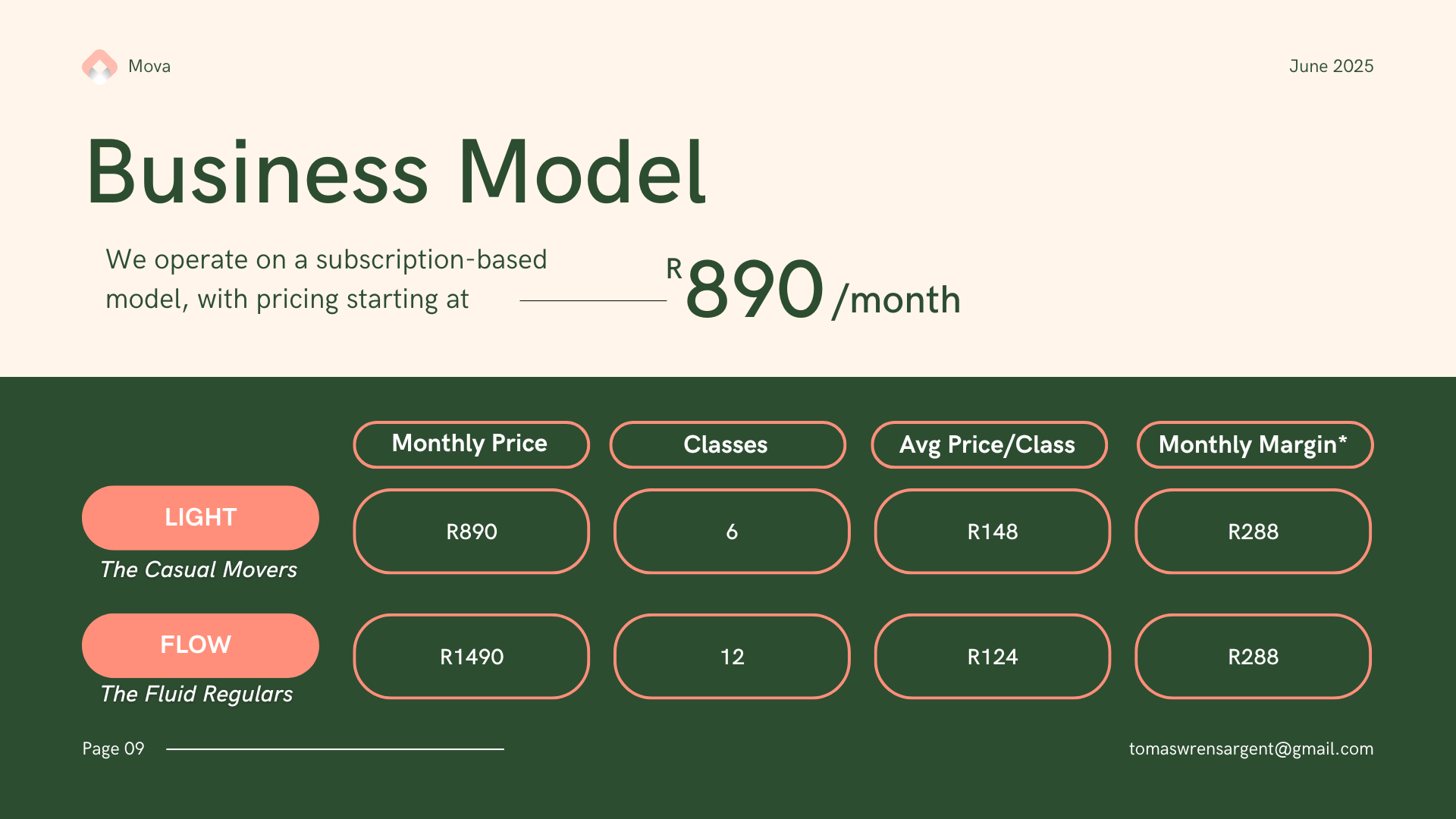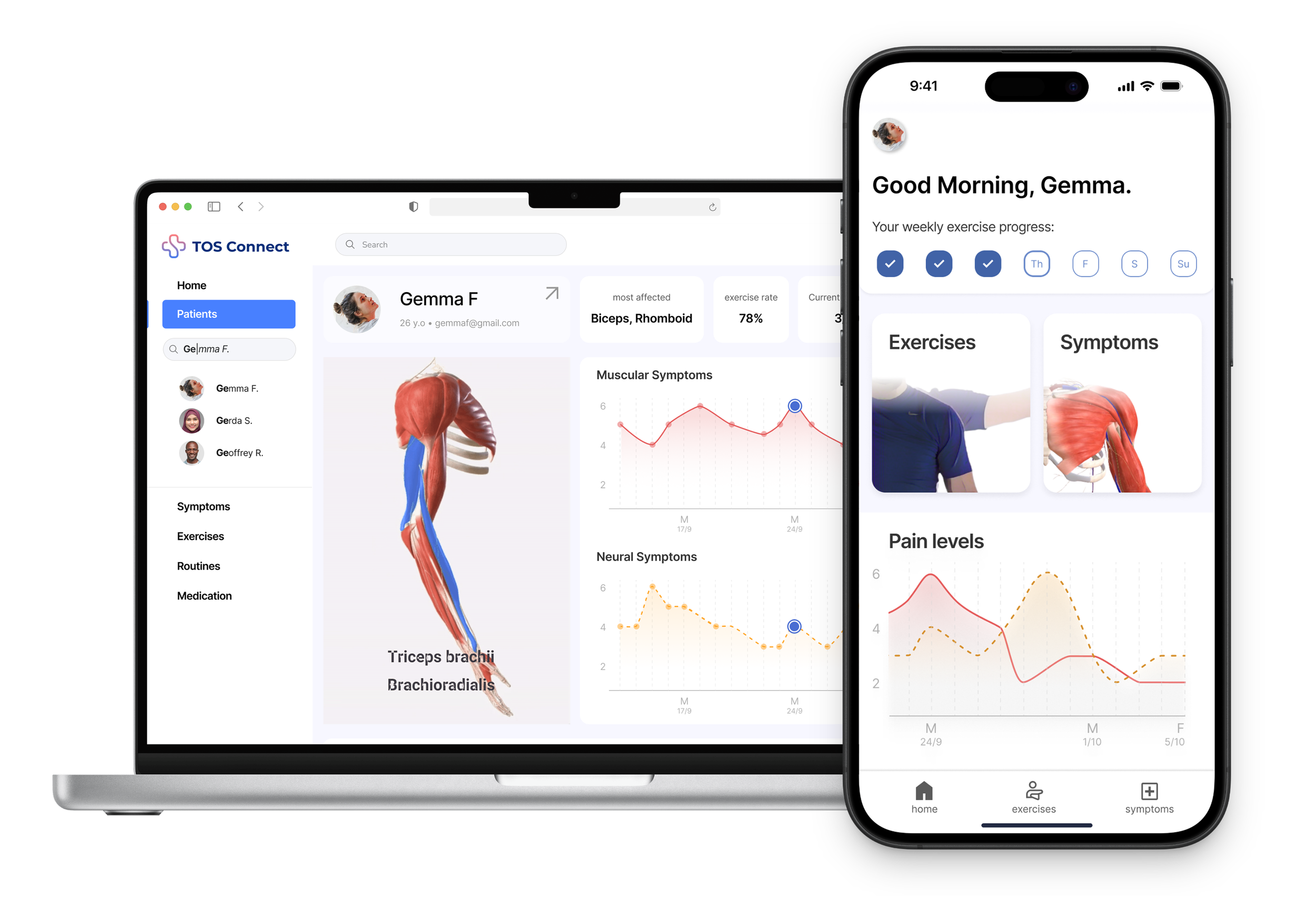A MVP app and pitch deck for a wellness class booking app, leading to the onboarding of 17 studios and 2 cofounders within the first three weeks.
Mova launching October 2025
MVP | AI Prototyping | High Fidelity | Pitch Deck
Problem: South Africa’s fitness industry is fragmented, with rigid memberships and disjointed platforms deterring users. Urban exercisers seek flexibility, while studios face inconsistent attendance.
Solution: To address this, MOVA provides a unified marketplace, streamlining class comparison and booking for users, increasing engagement with movement studios.
Team: Sabrina Klaubert (Founder, Marketing & Research), Evan Walther (CEO, Legal) , Joe Wunderlich (CTO), Tomas Wren.
Opportunity & Strategy: A single subscription provides users access to diverse studios, boosting flexibility and optionality. MOVA unlocks a $192M market, targeting a $4.9M GMV early adopter base.
Limitations: A 3-month sprint prioritized a pitch deck, MVP prototype, and high-fidelity screens targeting seed funding.
Note: Two founders previously launched FitKey, a similar fitness app, securing two funding rounds (2016-2020), but the project was halted during COVID.
The Opportunity
Market Research
Surveys with 115 participants in South Africa explored their exercise habits, spending patterns, and exercise preferences. Research indicates a significant engagement with fitness classes, with over 56% of respondents attending classes at least twice weekly.
Key findings:
96% of respondents are ready for something new; they just want the right offer.
Users desire a single platform to compare different classes.
Personas & Journey Maps
Problem statement
Users: Urban movers seek high-quality, flexible exercise options but face rigid memberships and clunky booking experiences, leading to decision fatigue, frustration, and abandoned fitness journeys.
Studios: Studios deliver great experiences but struggle with attendance fluctuations, revenue leakage and rising acquisition costs.
The Goal: Design an MVP platform allowing users to compare and book classes from a range of fitness studios, boosting flexibility, usability, and social connection tools.
Design approach
Research insights
Location
Class proximity is a primary factor for how users choose their exercise. As such, a preference for classes within 15 minutes of their home or work (or in between) was a top priority.
Designing for social factors
Our research indicated that users primarily discovered new classes and studios through social connections. This was a revealed rather than a stated preference. The design decision was made to prioritise social indicators, including instructor profiles and number of attendees, to increase engagement.
Designing the Solution
Wireframing & AI Prototyping
Initial wireframe sketches explored early design ideas.
Lovable AI was used to rapidly compare different design ideas in simple prototype form. The team could quickly align on a high-level approach through this methodology.
Design aesthetic
The key brand themes are vitality, community, and flow. These guided the app’s vibrant, approachable visual identity, ensuring consistency across Hi-Fi screens and pitch deck visuals.
Key colour combinations were tested to preempt WCAG issues.
Usability testing
Initial testing was run with the AI prototype. The key findings were:
Some users were unclear on the cost of different classes.
Some users were unsure where their ‘booked classes’ would appear in the app.
Design response:
A “confirm booking” CTA button was added to the class preview page, including a cost preview.
The class booking confirmation popup was updated to direct users to their “tickets” tab.
Refining the Design
Emphasising instructors
Our research indicated users were far more likely to try a new class if it was hosted by an instructor they had previously worked with.
To capitalise on this and encourage users to try new classes, a “top instructors” section is brought forward to the home page.
High Fidelity
The MVP design allows users to filter by location and exercise type, then compare classes at different studios. Social indicators are emphasised.
Below are selected slides showing market opportunity, revenue potential, and a clear path to scalable growth for the MOVA platform.
Pitch Deck
Going forward
Impact
The pitch deck successfully attracted two co-founders and supports VC funding efforts, and in conjunction with the MVP, has been able to get 17 studios signed up to date.
The current app design is ongoing, targeting an October 2025 launch.
Learnings
Designing under tight budget and time constraints was an exercise in ruthless prioritisation. Under these constraints, team coordination played a major role in focusing on measurable outputs.
Designing the pitch deck and app simultaneously encouraged me to consider the brand aesthetic as a whole.
Let’s collaborate!
Hey, thanks for taking the time to review my work.If you have an idea that we could collaborate on, or want to know more about my process, feel free to drop me a message!








